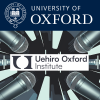Counter-terrorism and its Ethical Hazards
Since the terrorist attacks by Islamic militants upon the United States (and Great Britain) in the early 2000s, the drive to prevent further such attacks has produced a host of anti-terrorist governmental measures, including new laws and amendments to old ones, torture, wars and military strikes to name but a few. All these raise both conceptual and ethical issues that have serious implications for practical politics, and will be discussed in this seminar. Seminar 3 of 3 in the Series 'The Meaning of Terrorism - philosophical perspectives' Tony Coady is one of Australia's best-known philosophers. He has an outstanding international reputation for his writings on epistemology and on political violence and political ethics. Coady's best-known work, Testimony: a Philosophical Study (OUP, 1992), relates to the epistemological problems posed by testimony. In addition to his academic work, he is a regular contributor to public debate on topics having to do with ethical and philosophical dimensions of current affairs. A professor of philosophy at the University of Melbourne, he has served as the founding director of the Centre for Philosophy and Public Issues and the deputy director of the Centre for Applied Philosophy and Public Ethics (CAPPE) and head of its University of Melbourne division. In 2005, he gave the Uehiro Lectures on practical ethics at Oxford University which were subsequently published in 2008 by Oxford University Press under the title Messy Morality: the Challenge of Politics. His most recent publication is Morality and Political Violence (CUP, 2008).




